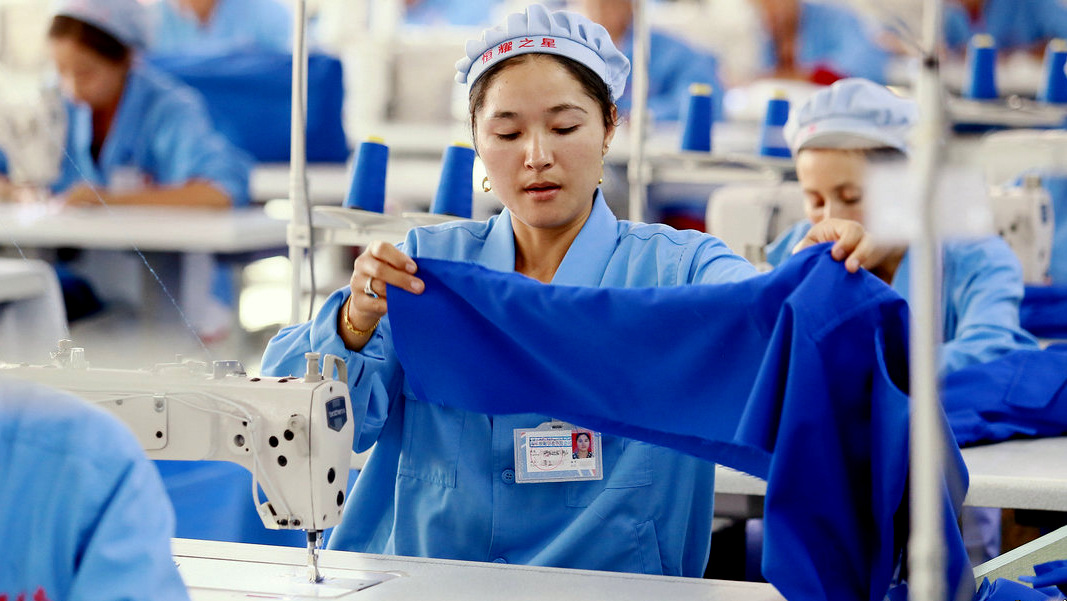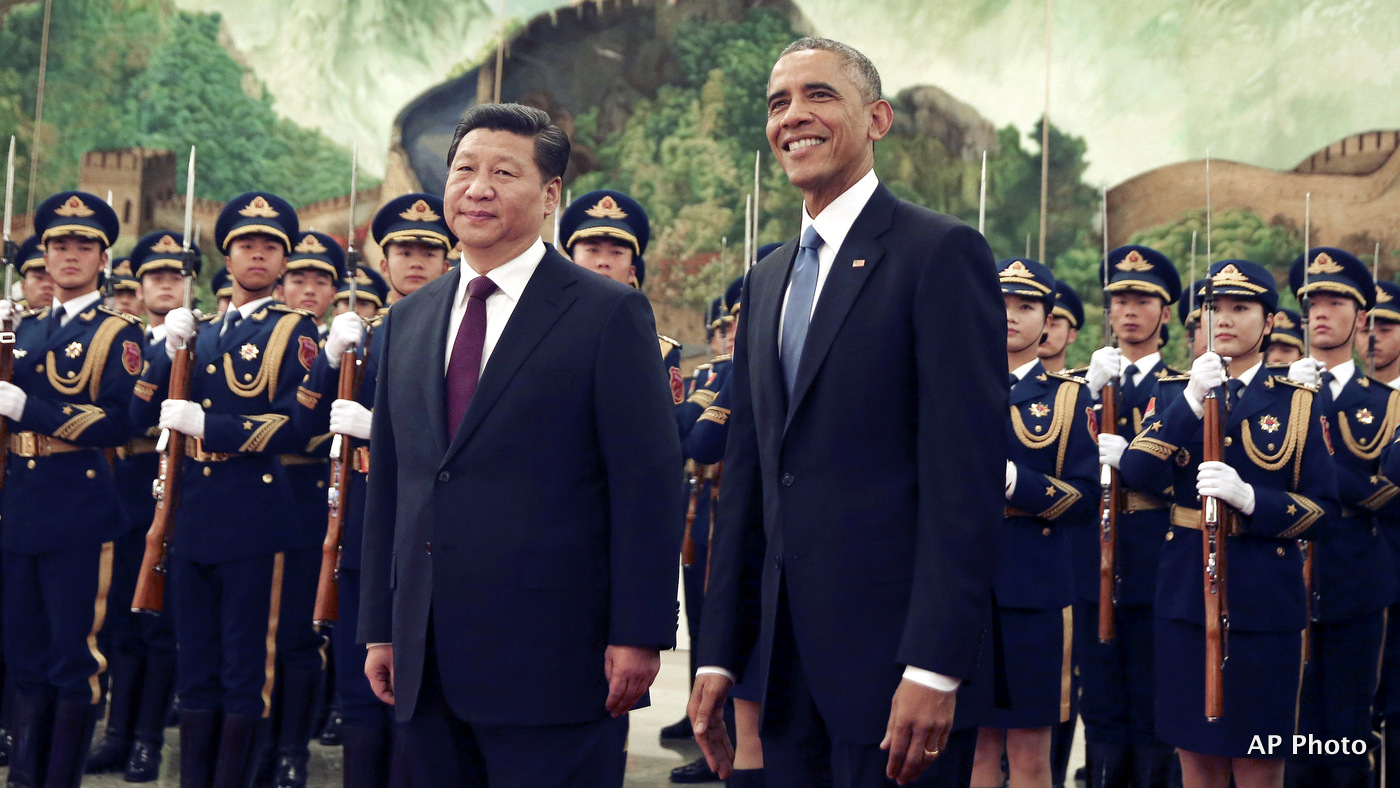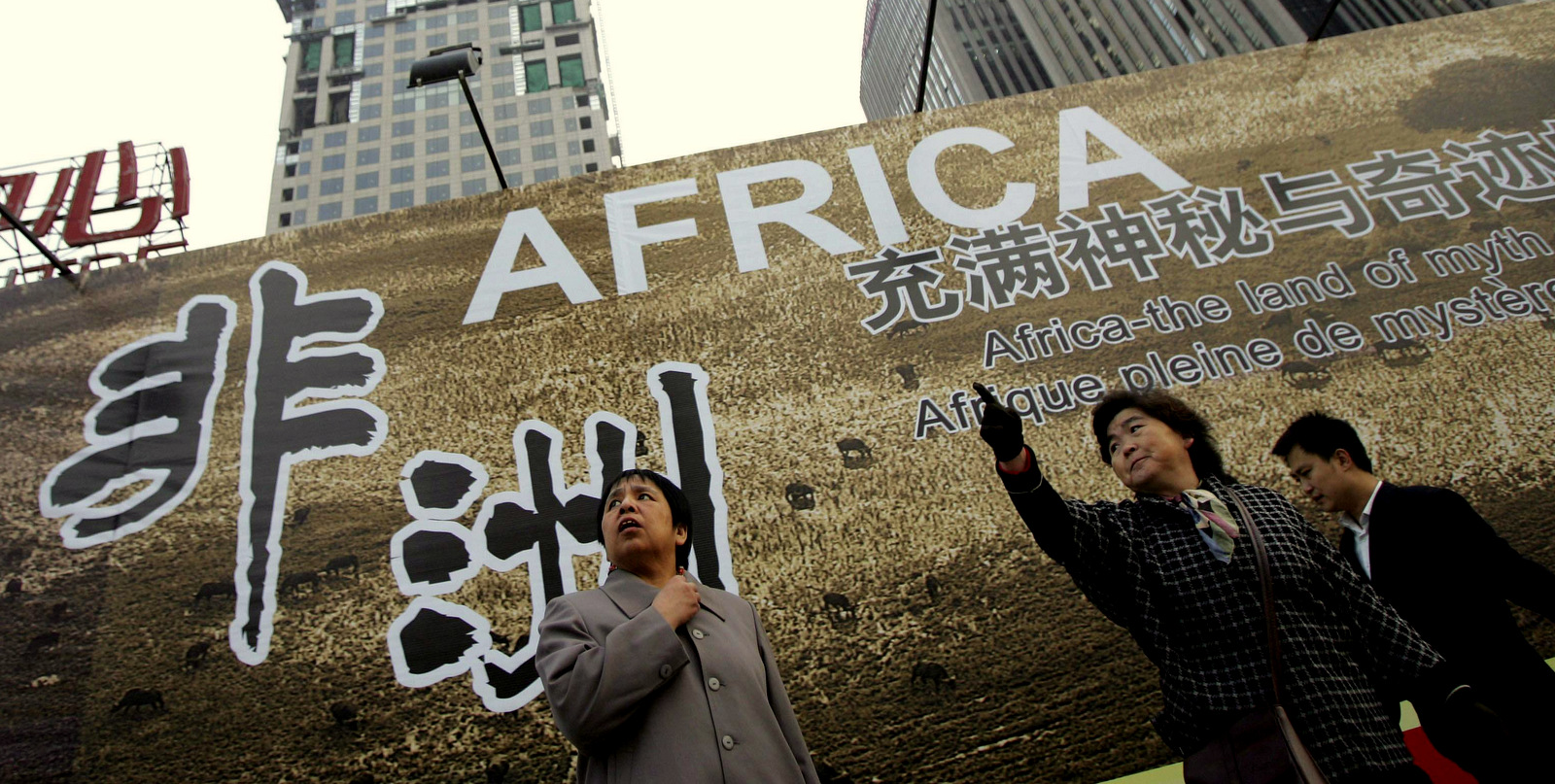BEIJING (Analysis) — The recent economic “correction” in the U.S. markets, which saw stocks drop back down from recent record-highs, has begun to spread to the east, reaching the stock exchanges in Tokyo, Taiwan and Shanghai. While all three of these markets depend, to some extent, on the performance of Wall Street, one is likely to emerge stronger as the U.S. market corrects itself.
Many Western economic analysts — such as those at the pillar of U.S. financial journalism, Bloomberg — have continued to predict future financial downturns would be caused by Chinese debt, or the country’s massive “shadow” economy (or, more specifically, low level loans that aren’t tightly regulated by the central government). This latest downturn, however, shows once again that Wall Street is still the primary factor in sinking global markets.
China has been faced with — and continued to grow throughout — a previous U.S.-triggered global recession just under a decade ago. While the current condition of the markets is nothing like the end of 2008, there is still the same fear in the West that China is somehow on the brink of catastrophe. Yet China pulled through the Great Recession, despite a huge decrease in demand for Chinese export goods. Beijing presided over GDP growth only falling below 8 percent in the last quarter of 2008 and first of 2009 and made a faster recovery than any Western nation.
China is obviously in a position much different now from that of 2008. Now — as a clear competitor with the U.S. in key economic sectors such as cutting-edge technology, and playing a unifying role for a large portion of the global population — Beijing is making even more major domestic economic reforms and preparing to project its new prosperity outward.
In order to better understand how China is likely not just to survive any fluctuations in the U.S. market but also to thrive, it is best to understand both how China managed to recover from the last recession faster than any other country and the new economic policies of President Xi Jinping, which will harness the power of the world’s largest planned economy in its march into the future.
China and the Great Recession
Chinese workers sew clothes at a garment factory in Wuqia town, Kuqa county, Aksu Prefecture, northwest China’s Xinjiang Uygur Autonomous Region, 27 September 2016. (Photo: Imaginechina/AP)
Much like the United States, China responded to the 2008 recession with its own stimulus plans. Unlike the U.S., however, China has continued lifting millions of people out of poverty in the last 10 years, while the U.S. didn’t recover to pre-recession poverty levels until late 2016.
So what exactly did China do differently?
Similar to how the U.S. media framed then-President Barack Obama’s stimulus plan (i.e., bailouts) as an implementation of demand-driven Keynesian economic theories, China also pumped money into the economy to stave off a downturn. The key difference between Beijing’s and Washington’s approaches is how much control the governments had over the companies they were supporting.
The stimulus plan in the United States is mostly remembered as the money issued as bailouts to key industries such as banks and auto manufacturers. This bailout saw the U.S. government end up owning stocks in companies such as General Motors (GM) while having no influence over the companies’ decisions. The companies like GM may have bought back this stock from the Treasury Department — seemingly vindicating the bailouts on strictly fiscal grounds — yet there is still the much larger discussion that has been had a million times (and continues to be had) on the economically stagnant quality of the lives of average Americans.
China, on the other hand, has managed to continue raising living standards and creating opportunity for the average Chinese citizens through the channel they used for their stimulus spending: State-Owned Enterprises (SOEs).
In a study commissioned by the Federal Reserve Bank of St. Louis, authors Li Wen and Jing Wu described Beijing’s response to the Great Recession as implementing “bold, decisive fiscal stimulus programs that no other major nations dared to adopt.” The authors noted of the SOEs in particular:
“The Chinese government cleverly used its SOEs as a fiscal instrument to implement its aggressive stimulus programs in 2009, consistent with the very Keynesian notion of [increasing demand] through increased government spending.”
Much as they continue to do, China invested large sums of money in the SOEs via new low-rate loans. While these SOEs represent only about 3.1 percent of businesses, they control around 30 percent of the industrial and service sectors in China, making them a major conduit for distributing stimulus money from the state to the average Chinese citizen. The decision to make this kind of investment, while the rest of the world was still in the early phases of dealing with the recession, led to almost 98 percent of Chinese citizens easily finding employment, despite the fall in exports.
Another trend still going on today that took off in 2008-09 was the investment by Beijing in infrastructure projects — with over 38 percent of the Chinese stimulus, about 1.5 trillion yuan ($238 billion), spent on public-works projects.
This massive level of investment that could be commanded by China’s top-down planned economic system is part of what made the country so resilient to the global recession triggered by Wall Street. While Obama spoke of mythical New Deal-style “shovel-ready” jobs through private contractors working with the government, China instead created growth by both commanding corporate behavior and directing infrastructure expansion.
These types of policies are still at work in China today and are a part of directing China’s foreign initiatives aimed at long-term investment as well. It is the resilience shown by China in 2008, combined with new economic reforms enacted under Xi Jinping, that ensures China will likely continue to resist most Western-driven downward market trends.
The reforms of Xi Jinping
Barack Obama, right smiles as a group of children wave flags and flowers during a welcome ceremony held by Chinese President Xi Jinping at the Great Hall of the People in Beijing, China.
One major complaint of the Western multinationals over the past several years has been China’s “closed economy” and its supposed failure to integrate foreign businesses.
Yet China is changing some of these rules. Although Beijing remains unlikely to allow companies likes those from Silicon Valley to penetrate crucial economic spheres such as the tech sector, Beijing has begun offering incentives to Western companies to do business in China, while at the same time installing protections to keep these same companies from fleecing money from the country.
On the incentive side is the recent offer by Beijing to give some U.S. corporations a zero percent tax rate in order to counter the capital-repatriation incentives included in the latest U.S. tax reform. At the same time, unlike the U.S., China does require some concessions from the companies benefitting from this special tax rate. Such concessions include corporate investment in infrastructure projects — a move that will “promote the growth of foreign investment, improve the quality of foreign investment, and encourage overseas investors to continuously expand their investment in China,” according to the Finance Ministry.
Read more by Jim Carey:
-
Kurds, Out of Options, Look to Syria’s Assad for Help
-
China Wins Big as Trump and US Abdicate Global Leadership
-
The MEK: From Revolutionary Group to Imperialist Asset
-
“Operation Olive Branch” Continues as Turkish Troops Push into Syria
Another key difference between Beijing and corporate-owned Washington is that, in China, for every carrot offered to U.S. businesses there is also a stick. In most cases this comes in the form of the capital controls put in place by Beijing, which limit the amount of corporate capital allowed to be moved out of China over certain periods of time.
China, like most of the world, is also wary of U.S. capital as a tool for influence, and of the subversion Western businesses often bring to the countries in which they operate. Beijing monitors these potential threats from U.S. companies and their decisions in China by placing representatives of the Communist Party in every level of both foreign and domestic corporations. Every company in China is obligated to form a party organization within the business and integrate it into its corporate structure.
The West has continuously hoped for China to open for business, yet the U.S. seems to be partially regretting this wish following the cancellation of the Trans Pacific Partnership (TPP) by President Donald Trump at the same time China began embracing the world. The TPP was supposed to allow the U.S. to block China from key Asian markets, bind together a majority of the world’s capital, and force China to open to more foreign goods or be further isolated from the world economy.
Growth and independence trump isolation
Chinese women stand in front of a billboard which promotes the China-Africa summit meeting, outside a hotel in Beijing. (AP/Greg Baker)
Trump’s cancelling of the TPP due to its unpopularity shattered these ambitions and opened the door for China’s Belt and Road program of international trade and investment. Like a mirror image of the TPP, Belt and Road will incorporate many of China’s Asian neighbors into a larger economic system but will also expand across the Global South in both Africa and Latin America and could one day include more countries — possibly even the United States, according to former Secretary of State John Kerry. In the end, the system being proposed by the architects of Belt and Road, “once completed…could cover over 4.4 billion people and generate a Gross Domestic Product of over $21 trillion,” according to the Brookings Institution.
China has gained so much economic strength over the past few years that they are now even beginning to replace the preferred currency of some nations in doing state-to-state financial transactions. The primary example of this is Pakistan, which, after a New Year’s Day Twitter attack by Trump for “supporting terrorism,” decided to conduct all business with China in Yuan as opposed to U.S. dollars. In light of this newfound economic power, Beijing has also begun testing the idea of a government-managed electronic currency, which could upend global payment systems and create a massive shift in online currency preferences in light of the increasingly unstable dollar.
These kind of ambitious projects by a government are almost unimaginable to those of us in the West, but China’s behavior shows that the government intends to keep growing in spite of whatever the U.S. markets may end up doing. Clearly no rational nation would bet its entire future on the stability of the U.S. market and, as more countries begin to turn to China as an alternative to the U.S., it looks as if China may not plan on developing a system dependent on the West.
The Western media tell their consumers that China is the next economic threat, and that if China doesn’t open its markets to foreign companies it is going to fail. This is the same media that have wrongly predicted that China would be responsible for economic downturns; that the country would need to become a “liberal democracy” to remain a viable economic power; and that Belt and Road would be an unpopular initiative, seen as Beijing softly extending its internal economic policy abroad.
Yet if all of the speculation about China has thus far proven to be wrong, perhaps we should think twice about our conviction that China won’t continue to grow and won’t be doing it better than the United States.
Top Photo: Kenyan President Uhuru Kenyatta 2nd left, and Chen Fenjian president of CCC shaking hands next to a model of a locomotive in Mombasa, Kenya, May 30, 2017. The president opened the country’s largest infrastructure project since independence, a Chinese-backed railway costing nearly $3.3 billion that eventually will link a large part of East Africa to a major port on the Indian Ocean. (AP/Khalil Senosi)
James Carey is a contributor to MintPress News and editor of Geopolitics Alert. He specializes in Middle East and Asian affairs.
The post As Wall Street Sinks Global Markets, China’s Economic Policies Build Independence & Immunity appeared first on MintPress News.






